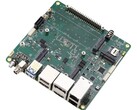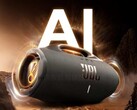A Reddit user (u/Der6FingerJo) has been steadily developing a handheld digital audio player (DAP) built around a Raspberry Pi Zero. They are trying to merge the simplicity of the iPod Classic with the flexibility of a modern music player. What began as a bulky 3D‑printed prototype has now evolved into a second, more refined iteration with a click‑wheel interface, tighter power management, and a cleaner circuit board layout. The good news is that the developer is promising to eventually open source both hardware and software once it reaches a stable stage.
The latest version consists of a custom PCB with breakout modules for a small color display, rotary encoder click wheel, 5V boost converter, Li‑Po charger, and a PCM5102 DAC. Power efficiency has been a central focus for the user: with Wi‑Fi disabled, underclocked processing, and the display dimmed, the Pi system draws under 1 watt. Paired with a 4,000mAh battery, the device is expected to run for 10 to 14 hours on a single charge, which brings it pretty close to the playtime of commercial players like the FiiO M21 (curr. $329.99 on Amazon). Music currently loads via the same microSD card that holds the system firmware, though future builds may add a second SD slot, USB transfer support, or wireless syncing.
On the software side, the player runs a lightweight Raspberry Pi OS Lite but will eventually move to a minimal Linux setup such as Buildroot for faster boot times. Development is being done primarily in Python with help from AI coding tools. The creator wants first to polish a responsive local music library system before going into streaming integration - with major reasons being weak Pi Zero Wi‑Fi and the overall appeal of offline playback.
There's a lot of community feedback already, and going by the reply history, it has clearly influenced design choices. Users have recommended features like tactile navigation, improved connectors, and features such as FM or even e‑ink displays. It's good to see that the developer is still open to ideas and is thinking about long‑term support through documentation and open sourcing.
Source(s)
u/Der6FingerJo via r/DigitalAudioPlayer subreddit


















